Roles of education in driving environmental, social and governance goals
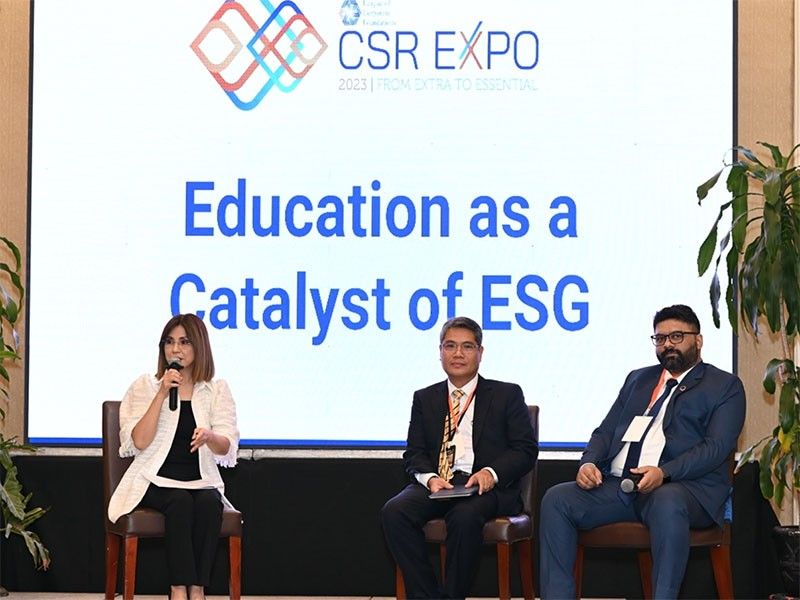
As I stood onstage, moderating the League of Corporate Foundations' Committee on Education Conference Session, I couldn't help but feel a sense of excitement and responsibility. The topic at hand was "Education as a Catalyst for Environmental, Social, and Governance (ESG) Goals," and the room was filled with individuals eager to explore the intersection of education and sustainability.
Over the course of 90 minutes, we delved into the importance of education in driving environmental, social, and governance goals. Being a media practitioner, I shared my insights on the roles of media in shaping this discourse.
Education, I stressed, is a powerful contributor to both society and business objectives. It serves as an enabler, a tool that can empower individuals, bridge social inequalities, and foster sustainable practices. It’s also a driver that actively propels or pushes forward a particular agenda or change.
When it comes to environmental goals, education plays a pivotal role. By raising awareness and promoting knowledge about climate change, pollution, and resource depletion, education equips individuals with the understanding necessary to tackle these issues head-on. Furthermore, it fosters behavioral change, encouraging sustainable practices such as energy conservation, responsible consumption, and waste management. Education also fuels innovation and solutions by nurturing critical thinking and problem-solving skills, paving the way for advancements in renewable energy, sustainable agriculture, and waste reduction.
In the realm of social goals, education acts as a catalyst for change. It promotes equality and inclusion by providing equal opportunities for learning and development, bridging gender gaps and reducing poverty. Education cultivates social awareness, exposing individuals to diverse perspectives and experiences, fostering empathy, dialogue, and respect for human rights. It also encourages civic engagement, empowering individuals to actively participate in their communities, advocate for social issues, and drive positive societal change.
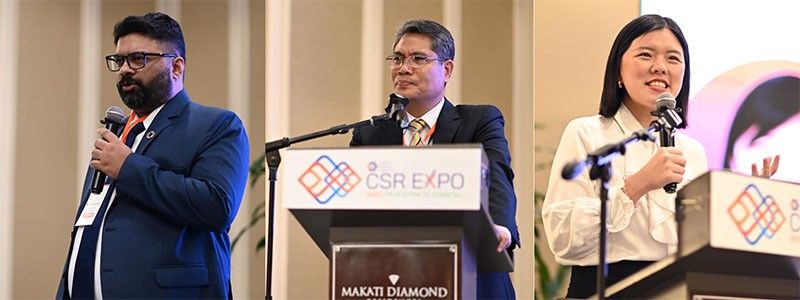
When it comes to governance goals, education is equally influential. It cultivates transparency and accountability, ensuring individuals understand the importance of responsible practices from governments, businesses, and organizations. Education develops ethical leadership by nurturing critical thinking and ethical decision-making skills, fostering a culture of responsible governance. Additionally, education in finance and economics equips individuals with the knowledge to assess the implications of financial decisions on ESG factors, supporting the growth of sustainable finance.
The media, on the other hand, plays essential roles in the education and ESG discourse. It serves as a powerful vehicle for raising awareness and disseminating information. Through news outlets, articles, documentaries, and social media platforms, the media educates the public about environmental and social issues, driving conversations and inspiring action. The media outlets provide dedicated sections covering climate change, sustainability, and social justice, enabling individuals to stay informed and engaged.
Social media, in particular, has revolutionized the way information is shared. It allows individuals to connect with like-minded individuals and organizations, creating a community of change-makers. Platforms like Twitter, Facebook, and Instagram facilitate the spread of knowledge and mobilize collective action. They provide a space for individuals to share their stories, amplify important messages, and engage in meaningful dialogue. Social media has the power to unite people globally, transcending borders and cultures, and igniting a passion for sustainable change.
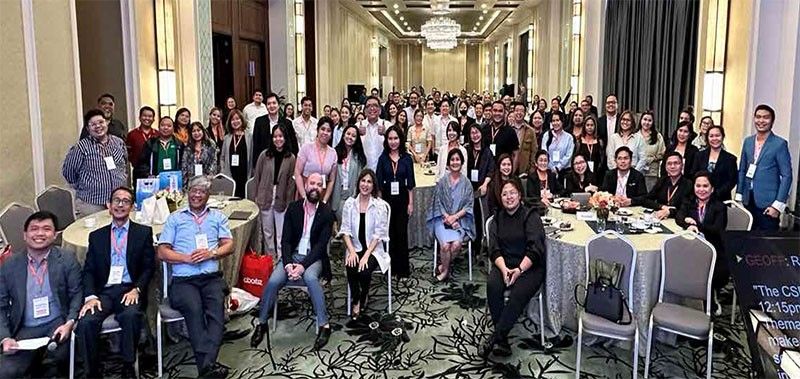
As a content creator, I know how valuable social media is in amplifying information -- especially ones that teach us how to create a viable future not just for ourselves, but the next generation as well. In my sharing, I emphasized the importance of using social media to go beyond our echo chambers to ensure that the vital information being discussed in the forum reaches the general public.
Media outlets must also uphold their responsibility to hold businesses accountable for their ESG performance. Investigative journalism plays a crucial role in exposing greenwashing and ensuring companies adhere to their ESG commitments. By reporting on corporate practices and initiatives, the media can inspire transparency and encourage responsible behaviors.
It is crucial for media organizations to uphold journalistic integrity, provide balanced reporting, and fact-check information before publishing. In an era of digital media, legacy media can leverage online platforms to complement their traditional channels and reach a broader audience.
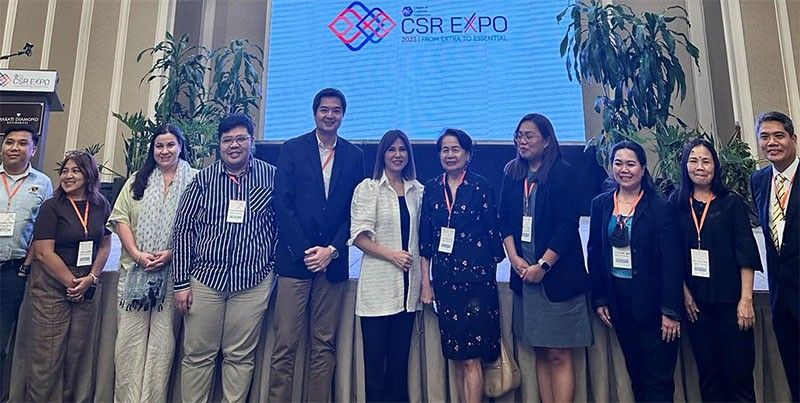
As a moderator for this relevant and timely conference, I had the privilege of facilitating these discussions among esteemed experts in the field. The insights shared during the session underscored the pivotal role of education in driving ESG goals.
Arpit Shrivastava, a renowned sustainability consultant and co-founder of GCSS Inc., highlighted the role of education in shaping ESG strategy formation and reporting. He emphasized that education provides the necessary knowledge and understanding to integrate sustainability into corporate practices. Arpit's experience working with various companies showcased how education can enable businesses to align their ESG goals with their strategic objectives.
Prof. Colin Legarde Hubo, Executive Director of the Center for Social Responsibility at the University of Asia and the Pacific (UA&P), shed light on how education serves as a catalyst for the coexistence of the ESG framework and corporate social responsibility. His presentation highlighted the importance of measuring the impact and benefits of education investments, ensuring their alignment with the ESG framework. Colin's expertise in sustainability and his extensive network of partnerships demonstrated the powerful collaborations that can be forged between businesses, educational institutions, and non-profit organizations to drive positive change.
The session concluded with a call to action for all stakeholders, including businesses, educational institutions, non-profit organizations, and governments, to collaborate and prioritize education as a key driver of ESG goals. The importance of cross-sector partnerships, sharing of best practices, and continuous learning and innovation was also emphasized.
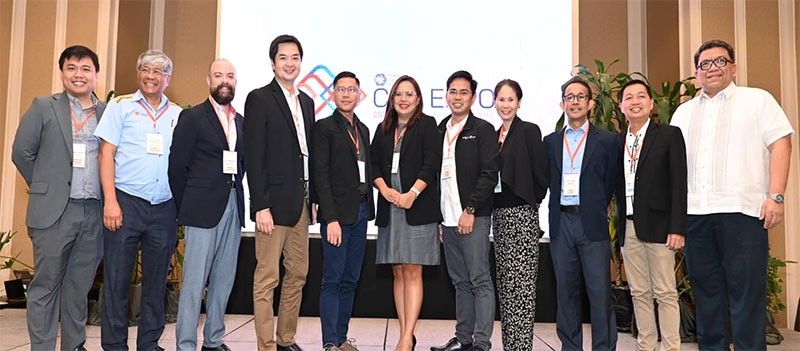
Moving forward, it is essential for stakeholders to continue working together, leveraging the power of media and social platforms, to amplify the message and the importance of education in the ESG discourse. By fostering dialogue, sharing resources, and promoting collaboration, we can drive meaningful change and create a more sustainable world through education.
----
Watch Pamilya Talk on Facebook, YouTube and Kumu (@JingCastaneda – 12:00 noon – 1:00 p.m. Monday & Wednesday). You can also follow my social media accounts: Instagram, Facebook, YouTube, Tiktok, Twitter and Kumu. Please share your stories or suggest topics at [email protected].
- Latest


























